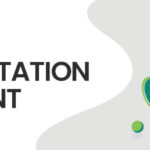The rapid evolution of Artificial Intelligence (AI) is one of the most transformative forces shaping the future of humanity. As we look toward the next decade, the Future of Artificial Intelligence promises profound changes across industries, societies, and individual lives. From autonomous vehicles to AI-driven healthcare, the next ten years will mark a period of unprecedented innovation and disruption.
1. AI in Healthcare
One of the most significant impacts of Artificial Intelligence will be seen in the healthcare industry. Machine learning algorithms are already helping doctors detect diseases earlier and with greater accuracy. In the next decade, AI will assist in personalized medicine, where treatments are tailored to individual genetic profiles. AI-powered diagnostics will become more sophisticated, reducing human error and enabling remote consultations and robotic surgeries.
Moreover, AI can manage and analyze vast amounts of medical data, helping public health officials predict and prevent disease outbreaks. This could revolutionize how we manage pandemics and chronic illnesses alike.
2. Education Transformed
AI will also revolutionize education by creating personalized learning experiences. Adaptive learning platforms will adjust to each student’s pace and style of learning, making education more inclusive and effective. Automated grading and tutoring systems will reduce the burden on educators, allowing them to focus more on teaching and mentoring.
Language translation powered by AI will also break down barriers for global learning, making quality education accessible to students regardless of their location or native language.
3. Autonomous Transportation
The next ten years will likely witness the mainstream adoption of autonomous vehicles. Self-driving cars, drones, and AI-managed traffic systems will reshape urban transportation. This could drastically reduce accidents caused by human error, lower emissions, and ease traffic congestion.
Logistics and supply chain operations will also benefit. AI-powered systems can optimize routes, reduce fuel consumption, and predict maintenance needs, making global commerce more efficient.
4. AI in the Workplace
The workplace is already undergoing transformation due to AI. Over the next decade, automation will take over repetitive and dangerous tasks, allowing humans to focus on more creative and strategic roles. AI will not only replace jobs but also create new ones, especially in fields like data science, AI ethics, and robotic maintenance.
Virtual assistants and intelligent enterprise software will streamline operations, enhance decision-making, and increase productivity. However, this transformation also underscores the need for continuous reskilling and upskilling of the workforce.
5. Ethical and Regulatory Challenges
As Artificial Intelligence becomes more integrated into daily life, it will raise complex ethical and regulatory questions. Issues around privacy, surveillance, algorithmic bias, and job displacement will require thoughtful governance. Governments and organizations must collaborate to develop frameworks that ensure AI is used responsibly and equitably.
6. Creative Industries and AI
AI is not limited to technical fields. Creative domains such as music, writing, and visual arts are also being transformed. AI-generated art and literature challenge traditional notions of creativity and authorship. In the coming years, collaboration between humans and AI in creative endeavors could lead to entirely new forms of expression.
7. AI and Climate Change
One of the most promising applications of AI is in combating climate change. AI can model climate patterns, optimize energy consumption, and manage smart grids. Precision agriculture powered by AI can increase yields while reducing environmental impact. These applications will be crucial in addressing one of the most pressing global challenges.
Conclusion
The Future of Artificial Intelligence holds immense potential to improve lives, enhance productivity, and solve complex global issues. However, it also comes with risks that must be managed carefully. As we step into this AI-driven future, a balanced approach combining innovation, regulation, and education will be essential to ensure that the benefits of AI are shared by all.


